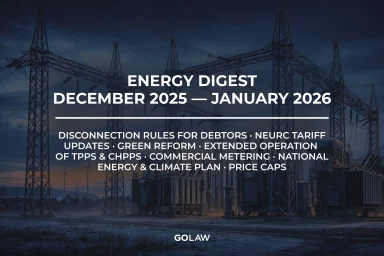What are esg standards and why business can no longer ignore the principles of sustainable development
Contents
In recent years, the global community has recognized the importance of sustainable development, prompting businesses to comply with ESG principles. ESG ratings compiled by independent research agencies are becoming increasingly popular: Bloomberg, S&P Dow Jones Indices, JUST Capital, MSCI, Refinitiv, etc. There is no single approach to rating formation. All agencies analyze open data about companies, but calculate the scores differently.
What are ESG principles and what role do they play in modern business?
The acronym “ESG” stands for environmental, social, and governance, key aspects used by investors, creditors, and stakeholders to assess the sustainability and social impact of investments.
Environmental principles cover the impact of a company’s activities on the environment. They include such factors as carbon emissions, waste management, energy efficiency and natural resource conservation.
Social principles are manifested in the impact of a company’s activities on the social sphere, in particular, the relationship of a business with employees, customers, suppliers and communities. They may include issues of the quality of working conditions, gender balance, diversity and inclusion, human rights, community engagement, product safety, support for investment in social projects, etc.
Governance principles are a reflection of a company’s corporate governance and are concerned with the structure, policies and practices that influence decision making. It includes issues of transparency of management processes, reporting, management compensation, a healthy working environment, relations with partners, and anti-corruption measures.
Compliance with ESG standards offers additional cooperation opportunities with international partners and is becoming a key component for business survival and development. This trend encourages Ukrainian businesses to implement ESG practices genuinely rather than superficially.
Economic and Reputational Benefits
Compliance with ESG standards provides positive reputational and economic effects. Businesses that adhere to these standards have better access to capital, as creditors and investors increasingly consider ESG factors in their investment decisions, preferring projects that align with sustainable development goals.
Environmentally friendly practices can lead to cost savings through energy efficiency, waste reduction, and resource preservation. Socially responsible practices, such as fair labor policies and community engagement, can enhance employee retention and productivity, further contributing to cost reductions.
Companies prioritizing ESG issues can also gain a competitive advantage by responding to the evolving sustainability preferences of consumers and investors.
However, in the future, ESG compliance will transition from an advantage to a necessity.
Regulation of ESG Standards
We are witnessing rapid development in the European legislative framework regarding ESG, particularly the harmonization of financial and sustainability reporting. In January 2023, the Corporate Sustainability Reporting Directive (CSRD), Directive 2022/2464 (hereinafter referred to as “Directive 2022/2464”) came into force. Directive 2022/2464 is part of the European Green Deal, which aims to achieve climate neutrality by 2050 and includes obligations for businesses to disclose social and environmental information.
In December 2023, the Commission Delegated Regulation (EU) 2023/2772 of 31 July 2023 (hereinafter referred to as “Regulation 2023/2772”) was published, aimed at the practical implementation of Directive 2022/2464 and contains 12 standards for sustainability reporting, in particular, defining its structure (hereinafter referred to as “Sustainability Report”).
Several additional standards are currently expected to be adopted in the EU and are in the development phase.
Corporate sustainability reporting requirements apply to large, medium and small companies, whose securities are traded on a regulated market in the EU, and their subsidiaries operating in the EU. The implementation of Regulation 2023/2772 will take place in several stages. Such companies must report not only on their own activities and the activities of controlled companies, but also on counterparties along the entire value chain, on associates connected with contractual or corporate relations with the reporting entity. That is, European companies will check the status of compliance with ESG standards among their counterparties.
Implications for Ukrainian Businesses
Currently, Ukrainian legislation does not mandate the preparation and presentation of a Sustainable Development Report. However, businesses should prepare for upcoming changes. Ukrainian companies that are planning or are already operating in the EU market should adapt their work to the standards of sustainable reporting today.
Small, medium and micro businesses seeking to attract grants or financing from the European Bank for Reconstruction and Development (hereinafter referred to as the “EBRD”) should pay special attention to the issue of compliance with ESG standards. The EBRD is committed to the principles of safe and sustainable development in all its activities and, accordingly, when considering applications for grant funds, compliance with the same principles by applicants is assessed.
In conclusion, ESG is not only an ethical choice but a strategic step for business development, investing in future competitiveness, reputation, capital attraction, and long-term business value. Integrating ESG principles benefits society and the environment and leads to stronger, more sustainable business outcomes.
If you need legal advice, please fill out the form below to request it.

Oleksandr Melnyk
Partner, Head of Corporate Law and M&A practice, Attorney at law
- Contacts
- 31/33 Kniaziv Ostrozkykh St, Zorianyi Business Center, Kyiv, Ukraine, 01010
- o.melnyk@golaw.ua
- +38 044 581 1220
- Recognitions
- Lexology Index: Client Choice 2026
- The Legal 500 2025
- IFLR1000 2025 (International Financial Law Review)
- Legal 500 Green Guide 2024
- 50 Leading Law Firms Ukraine 2026
Get in touch
To get a consultation, please fill out the form below or call us right away:Sign up to be aware
New achievements are inspired by information. GO further, don’t miss out GOLAW news and legal alerts
Our expertise
-
- Energy and Natural Resources
- Antitrust and Competition
- Banking and Finance
- Compliance, Corporate Governance and Risk Management
- Corporate and M&A
- Criminal and White Collar Defence
- Defense in Anti-corruption procedures and regulations
- Private: Digital Economy Practice
- Labor and Employment
- Natural Resources and Environment
- Government Relations (GR)
- Insolvency and Corporate Recovery
- Intellectual property
- International trade
- Legal support of business and private Сlients in Germany
- Litigation and dispute resolution
- Private clients
- Real Estate and Construction
- Restructuring, Claims and Recoveries
- Martial Law
- Tax and Customs
-
- Agribusiness
- Aviation
- Chemical industry
- Engineering, Construction and Building Materials
- Environment and Natural Resources
- Financial institutions
- IT and AI
- Industry and manufacturing
- Healthcare industries, Life sciences and Pharmaceuticals
- Media, Entertainment, Sports and Gambling
- Retail, FMCG and E-Commerce
- Transport and Logistics
We use cookies to improve performance of our website and your user experience.
Cookies policy
Cookies settings







